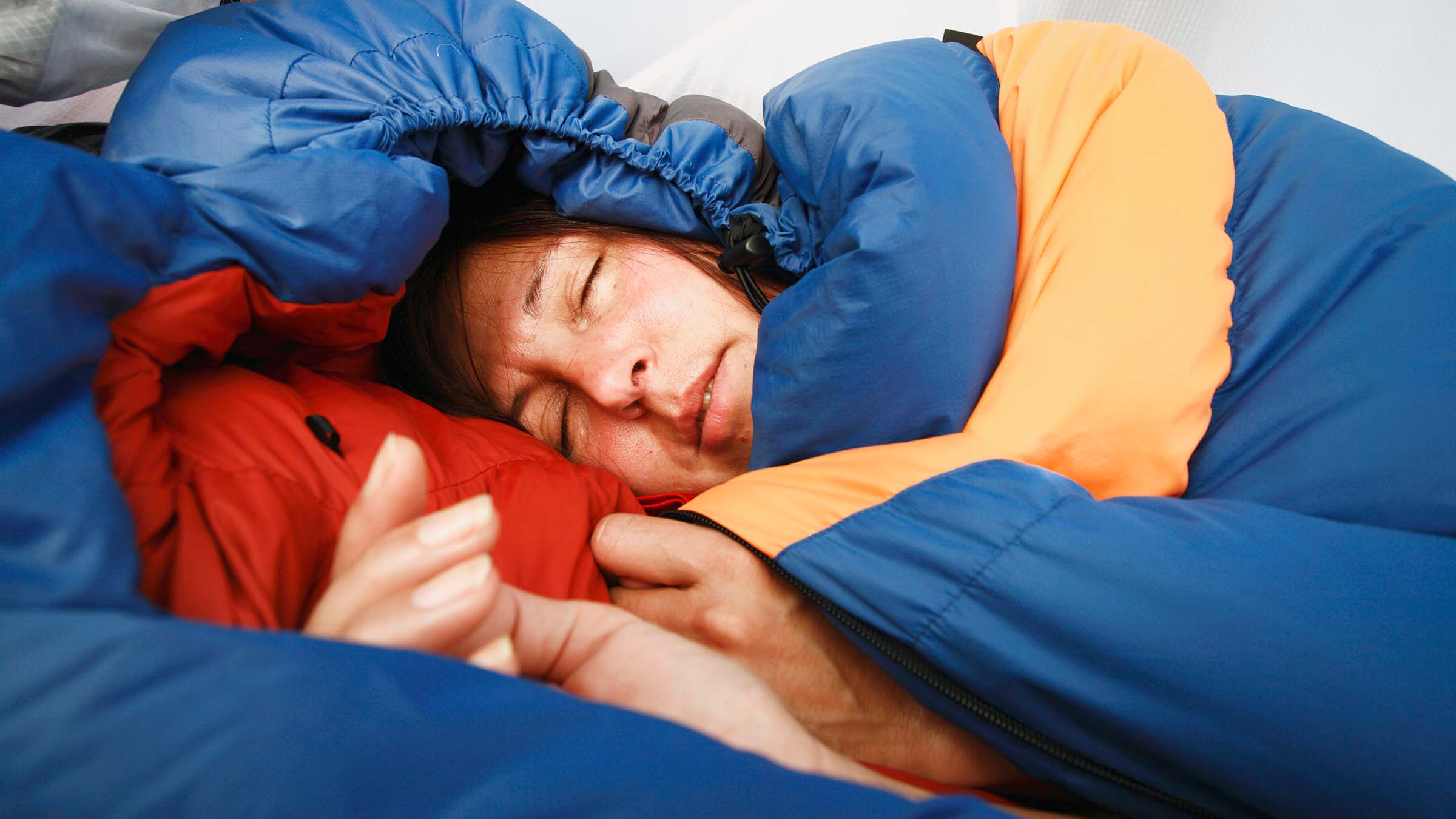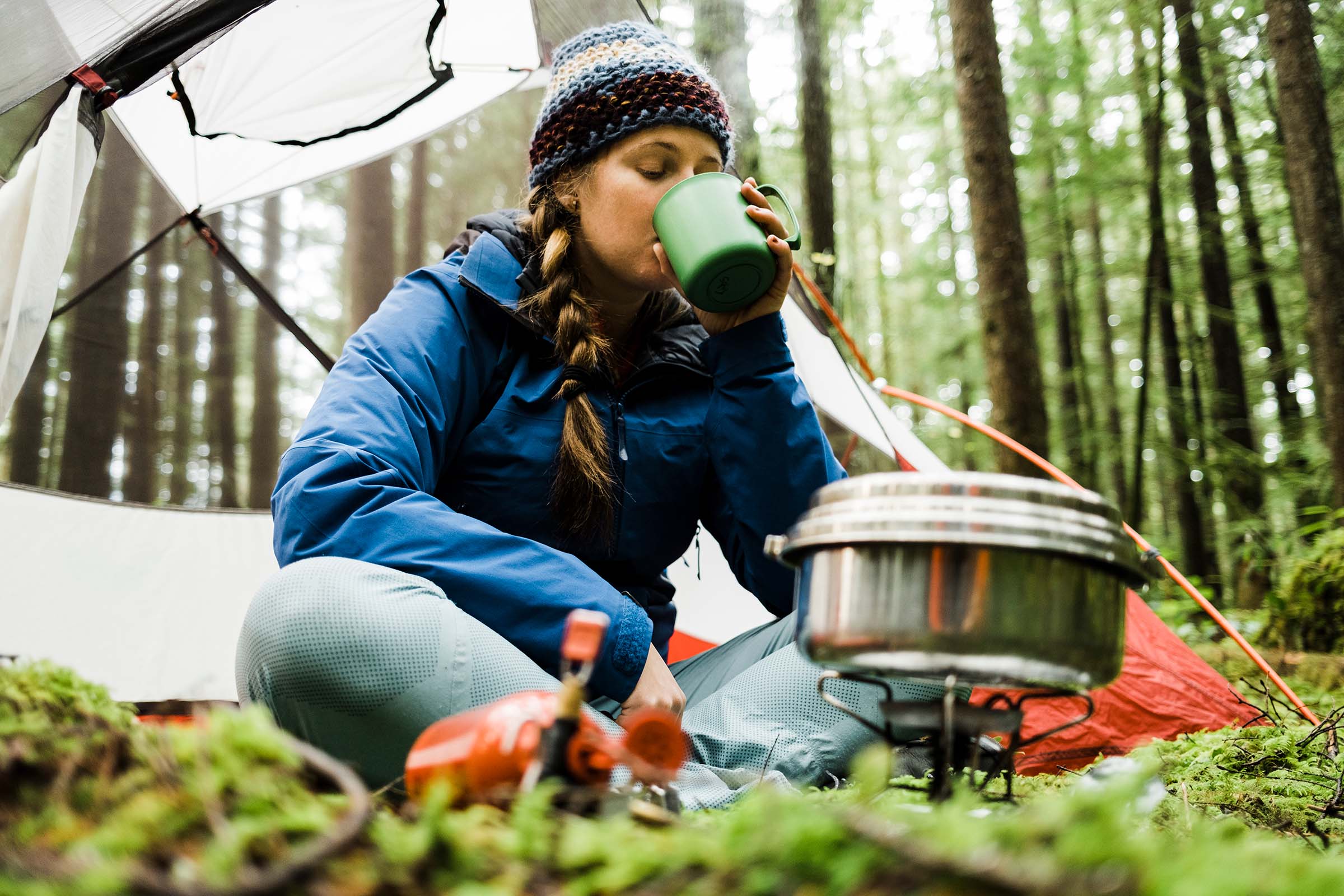Ask a Thru-Hiker: What Do I Do if I Get Sick On the Trail?

Being sick on the trail is no fun. (Photo: Johner Images via Getty)
Do you dream about hitting the trail for a long—really long—hike? In Ask a Thru-Hiker, record-setting long-distance hiker Liz “Snorkel” Thomas answers your burning questions about how to do it.
Dear Snorkel,
I’m quitting my job and heading on my first thru-hike next spring, and I am worried about getting sick on trail. I’ll be far from my family, who I normally rely on to bring me soup and help me out when I don’t feel great. What tips do you have for what to do if I were to get an illness on a thru-hike?
Soon-to-Be Calling In Sick
Dear Calling In,
“What do I do if I get sick” is a common concern among thru-hikers, especially in recent years, for obvious reasons. It’s no fun being sick, and it’s even worse when you’re far from central heating, cans of chicken soup, comfortable beds, and loved ones who can take care of you.
By far, the most common illnesses that happen on trail are related to 1) food poisoning, usually from something that you eat in town 2) Giardia, often due to improper hygiene and to a lesser extent, contaminated water 3) other illnesses, like colds, that are transmitted from hiker to hiker.
It’s cliché, but the first line of defense is prevention. Before you head out, part of your pre-hike prep should be to determine what kinds of benefits your health plan might provide for remote service, such as telemedicine. Checking with your insurance is also useful in case you need to see a doctor out of network or go to the hospital during your hike. Talk with your medical team before you go and develop a plan tailored to your known health conditions. As with all things thru-hiking, the more you know and have the skills to handle, the better equipped you’ll be should the unexpected happen.
Once you’re on trail, prevention is straightforward: Keep good personal hygiene, always treat your water, and avoid sharing food or shaking hands with other hikers. Next-level prevention involves avoiding shelters, trail registers, or places like hostels where hikers congregate and where norovirus and other germs may linger. Masking up, especially in enclosed spaces, in vehicles, and indoors, will also go a long way to keeping yourself safe, and making sure you’re current on vaccinations will help too.

Once you come down with an illness, you need a strategy to feel better. Here’s my system, but again, talk with your doctor to find out what works best for you.
First, text the folks back home and let other hikers know that you don’t feel well. Consult your maps. If you’re close to a road or bail-out side trail, consider hiking out of the backcountry and getting medical attention in town. If you do leave the main trail, let your loved ones and other hikers know your plan. Ask another hiker to come with you. Side-trails are one of the most common places where hikers get lost. Most side trails are not as well maintained as thru-hiking trails. Illness can only increase the challenges of making navigational decisions.
If you’ve got diarrhea, you may find even the prospect of hiking to the safety of a trail town is too daunting a task. The good news is that some trail illnesses, like food poisoning, may pass after a day. If you worked something out with your doc, text or call a medical professional to figure out whether resting in camp near the trail could be a better option.
If your tele-medical team thinks it’s safe enough for you to sleep it off, I’ve found in these situations, it helps to keep myself hydrated, ideally with some electrolytes. Especially for hikers with intestinal issues like giardia, dehydration is a very common symptom. I’ve heard of hikers who have been hospitalized not from the giardia that struck them, but the dehydration that resulted from the illness.
Whatever you do, if you feel ill, it’s essential to let the folks at home know that you’re sick and where you are. If you go missing on a side trail or get too sick to respond to texts, for example, that knowledge will help rescuers find you.
It’s good to let other hikers know you’re sick, too. Not only is it common courtesy so they can keep themselves safe, but other hikers may volunteer to camp with you or share food and water when you can’t get up. They may also choose to hike you to the safety of a nearby trail town where you can get medical help.
Don’t be afraid to ask other hikers for help. While we often start long trails for the joys of self-sufficiency, most hikers find the joy of the trail is actually the community. Besides, side from a good bear encounter story, there’s no greater thru-hiking tale than “that time I walked 10 miles off the JMT to help a sick hiker get to town safely.”
On my Appalachian Trail Fastest Known Time, I walked a disoriented hiker back up a mountain I had just summited so he could safely reach his rescuer, who was carrying his heavy pack up the climb. Though it put my speed record behind schedule, I believe the good trail karma more than made up for it. I ended up reaching the hostel/restaurant I planned to stay at that night an hour past final check-in time. But the sick hiker had called ahead—unprompted by me—and even tried to pay for my meal. It remains one one of my favorite stories from all of my thru-hikes.
If you do meet a sick fellow thru-hiker, consider taking a few hours of your trip to do another human being a solid. While the kindness of strangers won’t solve every ailment, it can certainly help.
—Snorkel